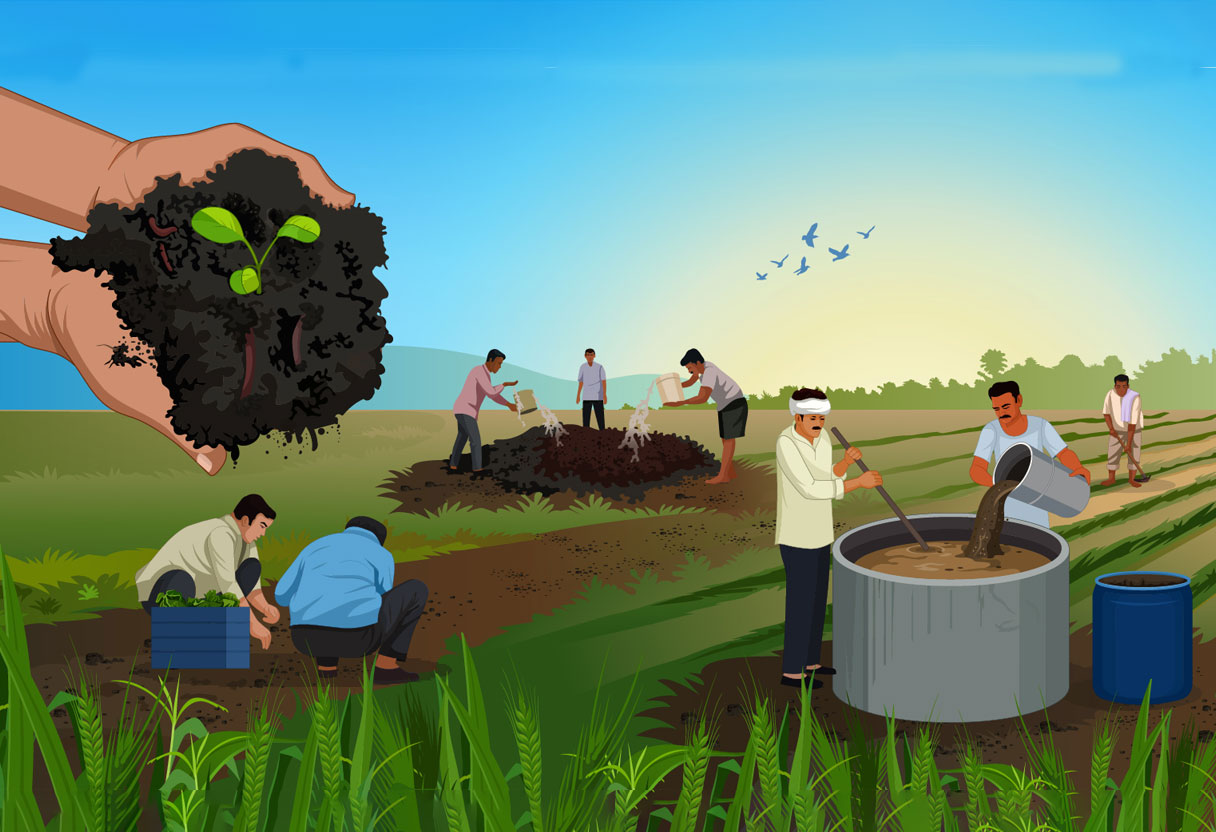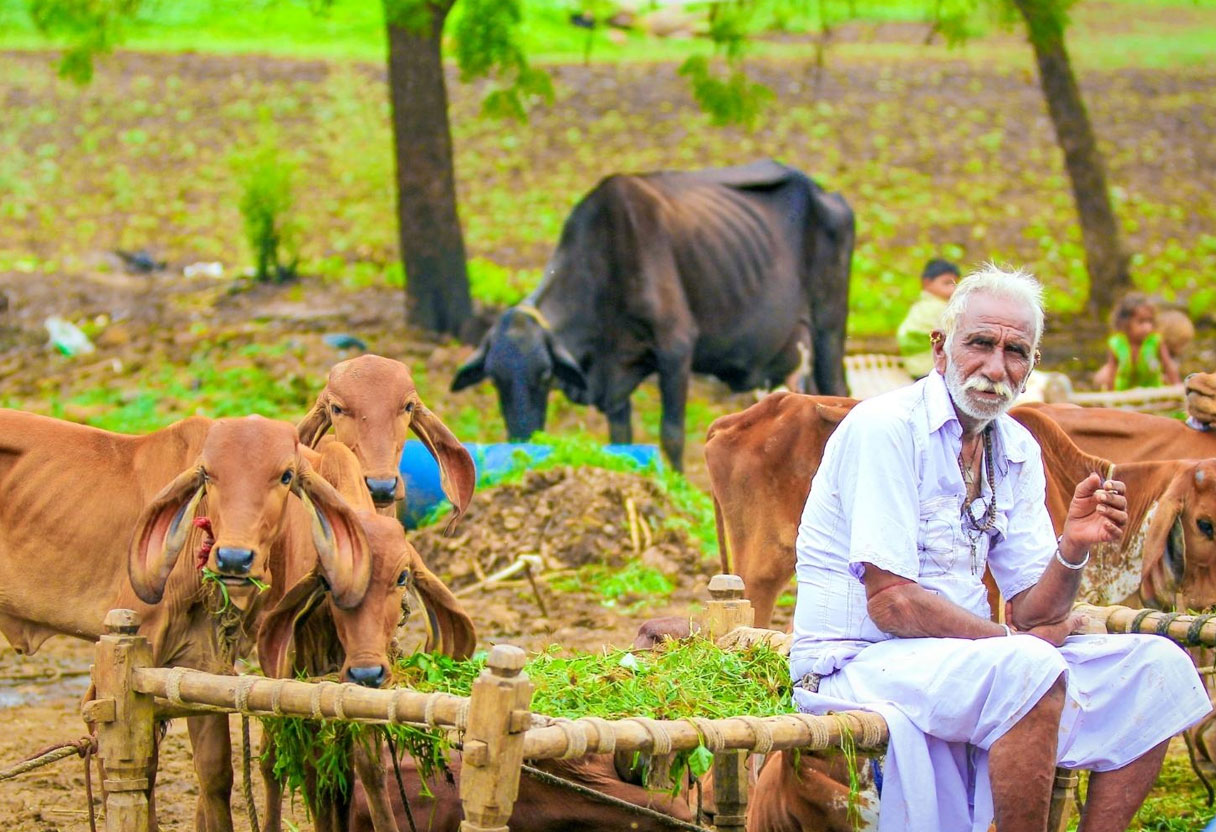Introduction
Zero Budget Farming (ZBF) is revolutionizing the agricultural landscape by offering a sustainable and cost-effective approach to farming. This innovative method aims to eliminate the dependency on costly chemical inputs and reduce the financial burden on farmers, making agriculture more accessible and environmentally friendly.
What is Zero Budget Farming?
Zero Budget Farming, often referred to as Zero Budget Natural Farming (ZBNF), is an agricultural practice that minimizes the use of external inputs. Developed by Indian agriculturist Subhash Palekar, ZBF promotes the use of natural resources available on the farm, such as cow dung, urine, and various plant extracts, to nourish the soil and plants.
Principles of Zero Budget Farming
- Jeevamrutha: A fermented mixture of cow dung, urine, jaggery, pulse flour, water, and soil applied to the soil to enhance microbial activity and soil fertility.
- Bijamrita: A seed treatment using cow dung, urine, lime, and water to protect seeds from soil-borne diseases and pests.
- Acchadana (Mulching): Covering the soil with organic matter, such as crop residues or green manure, to retain moisture, regulate temperature, and suppress weeds.
- Whapasa: Maintaining the right moisture balance in the soil to support microbial activity and reduce the need for irrigation.
- Natural Pesticides: Using plant-based concoctions, such as neem extract and garlic-ginger sprays, to manage pests without chemical inputs.
Benefits of Zero Budget Farming
- Cost Reduction: By eliminating the need for expensive chemical fertilizers and pesticides, ZBF significantly reduces the cost of cultivation. Farmers can achieve better yields without financial stress.
- Soil Health: ZBF practices enhance soil fertility and structure, promoting the growth of beneficial microorganisms. Healthy soil translates to healthier plants and better crop yields.
- Environmental Sustainability: ZBF reduces the dependency on synthetic chemicals, thereby minimizing pollution and conserving natural resources. It promotes biodiversity and supports ecological balance.
- Improved Farmer Livelihoods: With reduced input costs and improved yields, ZBF can enhance the economic stability of farmers. It also empowers small and marginal farmers by making farming more accessible.
- Climate Resilience: ZBF practices improve soil health and water retention, making agricultural systems more resilient to climate change and extreme weather events.
Case Study: Zero Budget Farming in India
Zero Budget Farming has gained significant traction in various states across India. In Karnataka, for instance, the government has supported the adoption of ZBF through training programs and subsidies. Farmers in Andhra Pradesh have also reported increased yields and reduced input costs after switching to ZBF.
A notable success story is that of Lakshmamma, a farmer from Karnataka who adopted ZBF. By using Jeevamrutha and Acchadana, she transformed her barren land into a productive farm, growing a variety of crops without any chemical inputs. Her success inspired many other farmers in her village to embrace ZBF.
Challenges and Solutions
While Zero Budget Farming offers numerous benefits, it also faces challenges such as:
- Awareness and Training: Many farmers are unaware of ZBF techniques. Conducting workshops, demonstrations, and providing training can help bridge this gap.
- Initial Skepticism: Farmers accustomed to conventional methods may be skeptical of ZBF. Success stories and peer-to-peer learning can build confidence.
- Market Access: Ensuring that ZBF produce reaches consumers who value organic products can be challenging. Developing strong market linkages and certification systems is crucial.
Conclusion
Zero Budget Farming presents a viable solution to the challenges faced by modern agriculture. By promoting sustainable practices and reducing financial burdens, ZBF can transform the agricultural landscape, benefiting farmers, consumers, and the environment. As more farmers adopt this approach, we move closer to achieving sustainable and resilient agricultural systems worldwide. Embracing Zero Budget Farming is a step towards a healthier and more sustainable future for all.








Leave a Reply